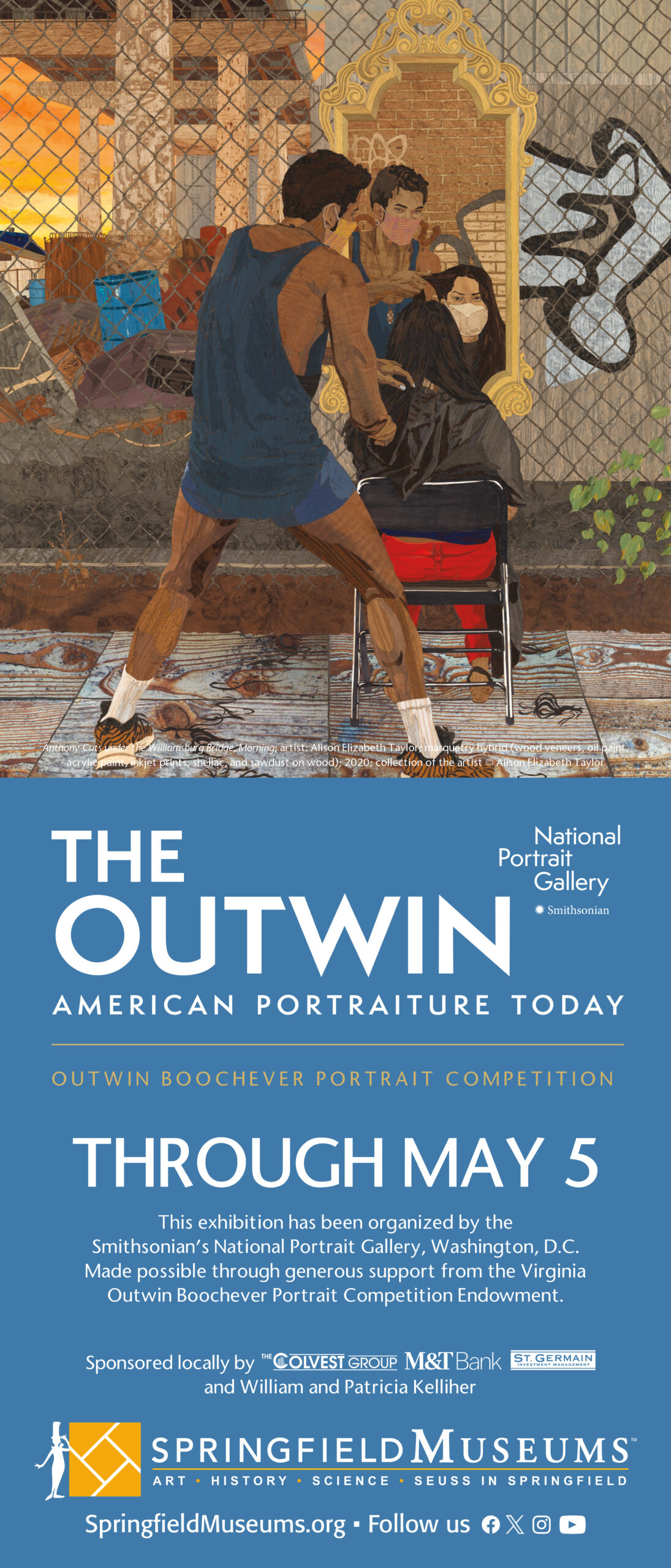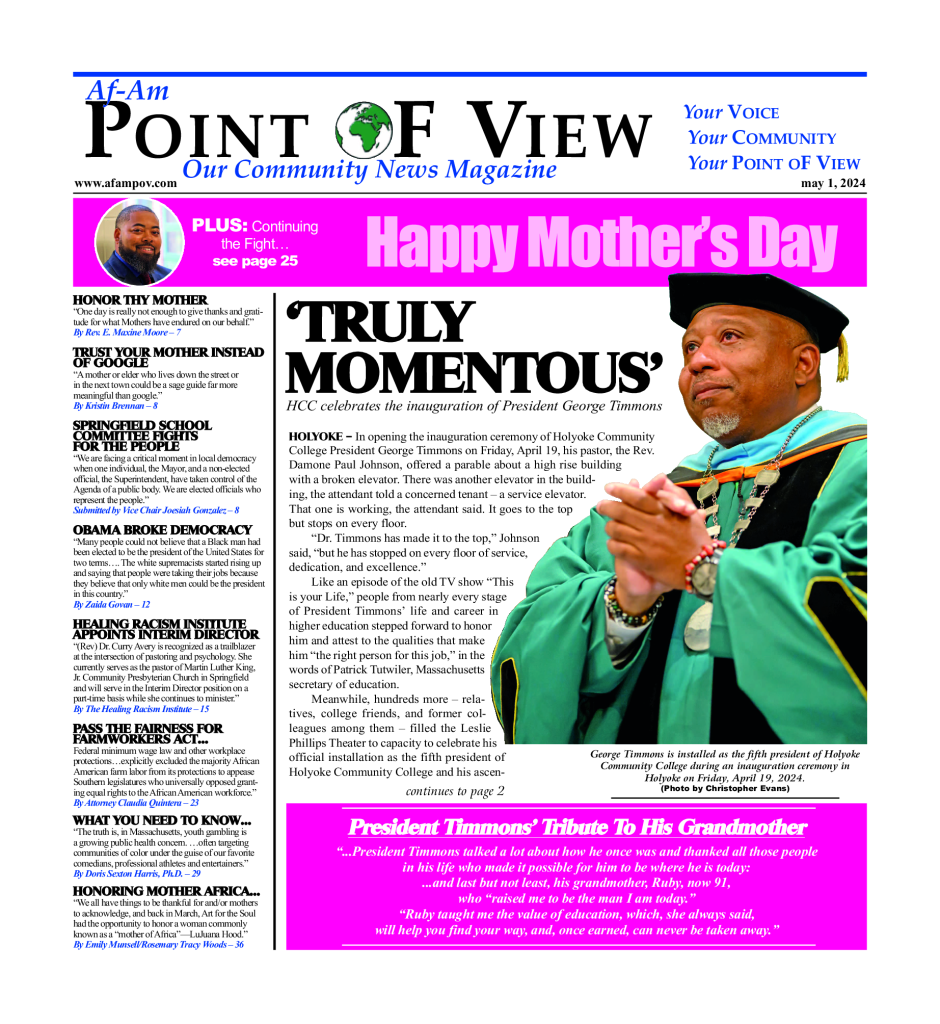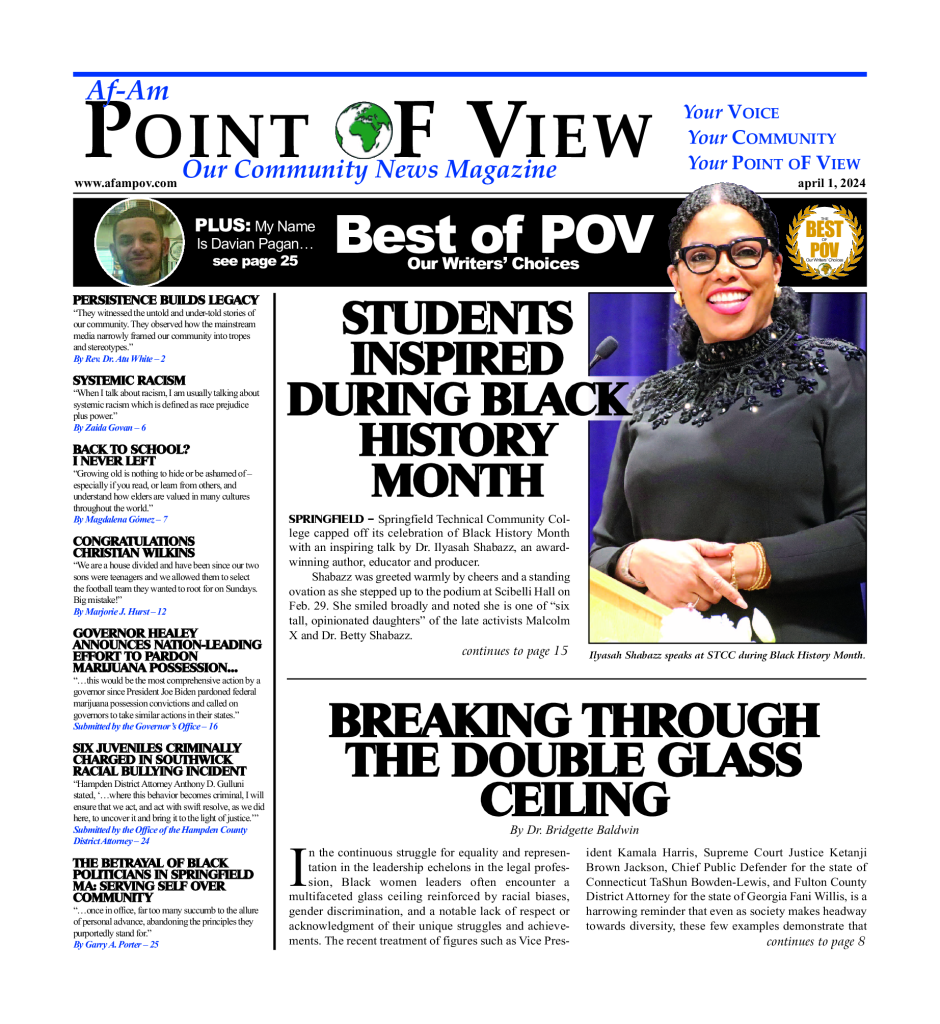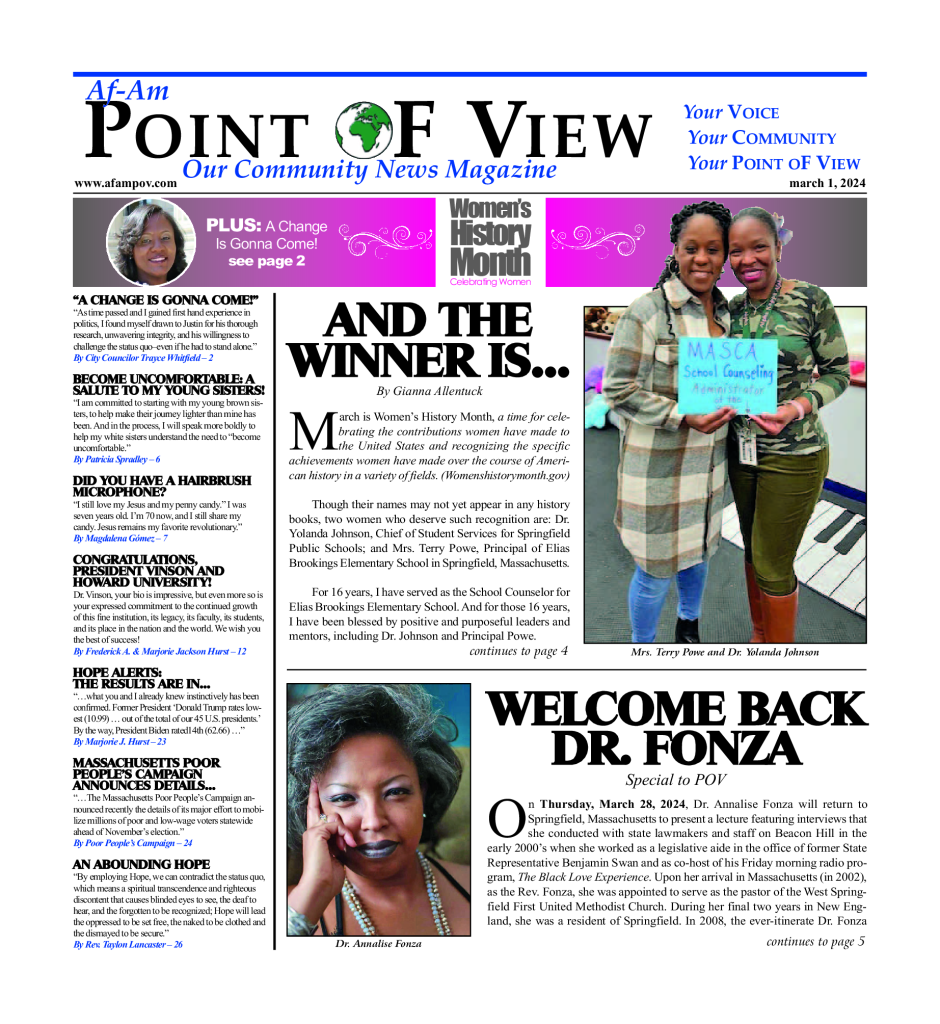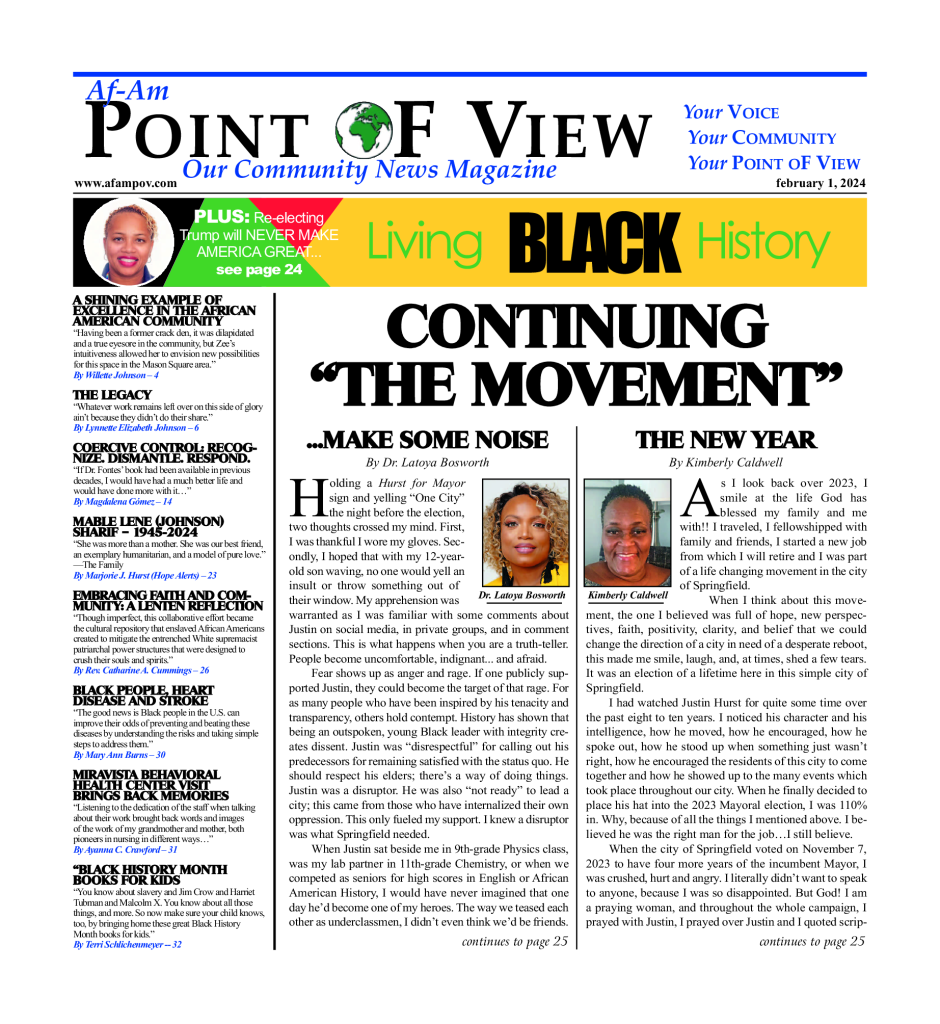By Frederick A. Hurst
I ended Part l of my article on H. Rap Brown as follows:
“My focus is on (H.) Rap Brown because he was my age and he experienced Howard University during my time and, though we went different ways and ended up in starkly different places, we share a lot in common, which is why when I see so many Black folks in Springfield hesitate to carry on the fight with the same vigor as people like H. Rap Brown and, in altogether too many instances, behave submissively to mediocre and undeserving White authority, I cringe and wonder why.”
My emphasis in Part II, of course is on the last part of my ending, “…which is why, when I see so many Black folks in Springfield hesitate to carry on the fight with the same vigor as people like H. Rap Brown and in altogether too many instances, behave submissively to mediocre and undeserving White authority, I cringe and wonder why.” For now, I need go no further than the Springfield City Council which has a more substantial Black presence than ever in its history. Members have been elected in both at-large and ward contests which means that their power is not derived from just one segment of the population but, rather, from a broad cross section. If those five Black city councilors would simply concentrate their power in concert with at least two other nonblack allies on the council, they could control the legislative branch of Springfield city government and have more influence over the city’s executive branch than ever before. But they don’t concentrate their power and the only reason they do not is because three of the five Black councilors are so blinded by the idea that the mayor will give them and their constituents more if they simply do his bidding, a fantasy that has no basis in historical fact and sound logic.
These three wayward councilors, like too many other Black folks who seem to have forgotten or don’t know or care about the history of Black Springfield, “skin and grin” and otherwise strive mightily to demonstrate slavish behavior that will attract the mayor’s attention and approval whenever he walks in the room or otherwise attends a community event even as this man has demonstrated an almost complete disrespect for the community by demanding that all power and all decisions reside in himself and his White associates to the detriment of, not only the Black community, but the entire city. The only difference is that the Black community suffers the most.
The Black situation on the Springfield City Council brings to mind a quote by Harriet Tubman who freed herself from slavery and went back South time and again to free others. She said: “I freed thousands of slaves. I could have freed a thousand more if only they knew they were slaves.” I understand what Harriet Tubman meant although I might add “and if only they weren’t afraid” to her quote.
I recommend that councilors Malo Brown, Marcus Williams and Melvin Edwards take lessons on their own local history and on what it means to be Black and ineffective in Springfield after which they just might understand why people like H. Rap Brown rejected the slave posture and encouraged Black folks to take control of their own lives, their own destinies.
And as the three Black Springfield City Councilors take that journey – if they dare – I suggest that they don’t hide behind the older Black folks whom they think they are following and imitating. Those older Black folks, like the late and visionary Raymond Jordan, came from a different time and responded to much more difficult circumstances in the only way they knew how and possibly the only way they could. If they had the same opportunities today, I assure you, they would do things differently. The H. Rap Browns of the world and many others, including Harriet Tubman, Martin Luther King, Malcolm X and Frederick Douglass and many local folks, paid the prices for folks like the three wayward councilors to do better than slide back into the subservient past.
H. Rap Brown saw Black people “who seemed to work on behalf of white supremacy as more of a threat to progress than white people” which is why he so carefully distinguished between “Black vs. Negro.” And as I wrote in Part I, “I must admit, it is a distinction I embrace to this day although I prefer to describe it as “Black vs. Uncle Tom.” One enterprising White journalist described the syndrome a little differently in an effort to explain the relationship between Russian President Vladimir Putin and our former President Donald Trump who sucked up to him. He explained that Putin played Trump up publicly but put him down privately and actually considered him a “useful idiot.”
My message to the three wayward Black councilors is, if you want your legacy to be reflected in these types of references relative to your relationship to Mayor Sarno then keep being foolish and you’ll have your way. But don’t think people will not be laughing at you and scorning you for being Mayor Sarno’s “useful idiots.” They are already laughing so you might want to rethink your approach before your legacies become locked in the concrete of history.
We have two brave Black members on the city council (Justin Hurst and Trayce Whitfield) who are managing to make an impact by standing up for the folks they represent. They get support from the entire city: Black, White, Hispanic and Asian. And they don’t suck up to White authorities simply because they are White and are willing to confront them when they are wrong and to fight them if they must. It’s a courage thing. And they are doing a pretty good job of it. Rather than aiding and abetting White authorities who want to submit them and their constituents and maintain absolute dominance, the three wayward Black councilors might also want to consider what the other two councilors are doing to attract the admiration of so many and imitate them rather than kissing the mayor’s backside and continuing to imitate relics of the past whose times have also passed.
Finally, I want to clarify a point about “Whiteness” because I’ve had so many innuendos thrown my way about my dislike for White folks by Black folks whose submissive behavior qualifies them as “Uncle Toms, like the three wayward councilors.”
I don’t like dishonest White folks especially those who pretend to be superior to Black folks while embracing their privilege while at the same time denying it. Similarly, I dislike dishonest Black folks who fear White folks while claiming to have some special affinity to White folks that justifies them selling out their own community for personal gain and who do everything they can to disrupt what productive Black folks are accomplishing. Whiteness is not what offends me any more than Blackness offends me. It’s bad behavior that offends me.
It all seems simple to me which is why I wrote about Time’s Rembert Brown’s assessment of H. Rap Brown: “…he saw Black people who seemed to work on behalf of white supremacy as more of a threat to progress than white people.” Those three wayward councilors should consider H. Rap Brown’s observation which is no less true today than it was yesterday.
PART III: THE HISTORY (April Issue) ■

